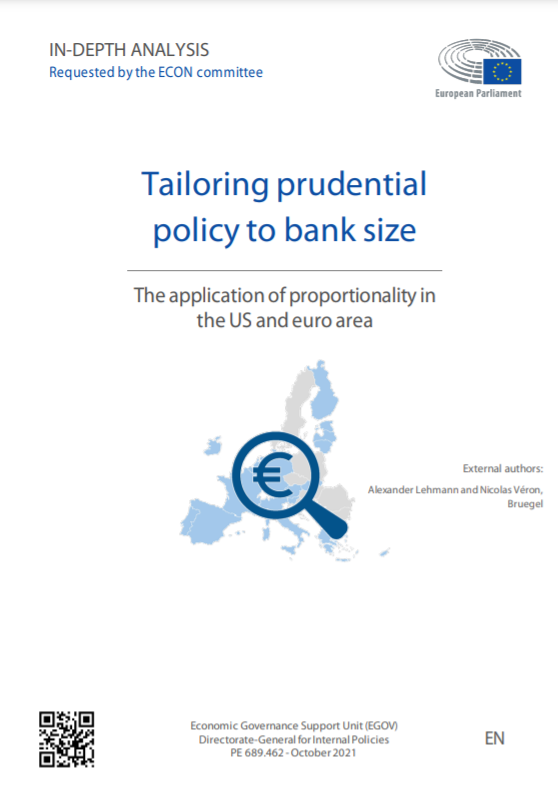Blog Post
Lessons from the launch of the US Consumer Financial Protection Bureau
The US government established the Consumer Financial Protection Bureau (CFPB) in 2011 as an independent agency accountable to Congress. Despite political pressures, the CFPB has taken various initiatives to enhance consumer protection in financial services. The case is a useful guide to the Korean government in terms of setting optimal level of roles and obligations in establishing an equivalent institution, while reducing uncertainty for financial firms by providing timely information on regulatory changes.
The US government established the Consumer Financial Protection Bureau (CFPB) in 2011 as an independent agency accountable to Congress. Despite political pressures, the CFPB has taken various initiatives to enhance consumer protection in financial services. The case is a useful guide to the Korean government in terms of setting optimal level of roles and obligations in establishing an equivalent institution, while reducing uncertainty for financial firms by providing timely information on regulatory changes.
Since the global financial crisis, prudential regulation and conduct regulation came to be conducted separately in many countries, such as the US, Belgium, France, the UK, Chile, South Africa, and China. In the US, the Consumer Financial Protection Bureau (CFPB) became primarily responsible for supervising financial institutions for consumer protection, a responsibility that was previously shared betwen the Fed, the Office of the Comptroller of the Currency, the Federal Deposit Insurance Corporation and the National Credit Union Administration. However, consumer protection related to investment funds and insurance policies are exempt in this regard, and continue to be governed by the Securities and Exchange Commission, the US Commodity Futures Trading Commission and regulators in respective states. Also, financial firms with less than $10 billion in assets will be supervised by prudential authorities as before for consumer protection.
The CFPB is funded directly by the Fed, but as an independent bureau, it is monitored by Congress. The CFPB went through turbulent times filling the top position. When the CFPB launched in July 2011, President Obama nominated Richard Cordray as the head of the new agency, but it took almost six months before the appointment was finalised. Forty four Republican senators refused to endorse the appointment unless the Dodd-Frank Act was revised to weaken the power of the CFPB by replacing the top position with a five-member committee. Finally, the president turned to the recess appointment provision last January. The political backlash is still ongoing as some Republican state attorneys general refuse to sign the memorandum of understanding required for the work with the CFPB. Meanwhile, the CFPB concluded an MoU with the Federal Reserve Board, according to which CFPB employees may participate in the Fed’s retirement pension plan. The MoU also mapped out a procedure for transfer of qualified Fed employees to the CFPB.
Because the CFPB is an independent agency monitored by Congress, the Fed cannot veto the CFPB’s proposals. And Congress does not interfere with the CFPB’s budget, as the bureau draws budget from the Fed within the upper limit set by the Dodd-Frank Act. Nonetheless, the Financial Services Committee of the House of Representatives voted to recommend a cut in the CFPB’s annual budget to $200 million to enhance its accountability and reduce the budget deficit of the government.
Despite the political cacophony, the CFPB has taken various initiatives in the past year including ‘Know Before You Owe’ and has proposed various regulations to enhance consumer protection. As a part of the efforts to protect borrowers, the CFPB proposed a new regulation on loan estimate and closing disclosure last July, mainly to streamline and consolidate information-disclosing forms for mortgage loans, credit cards and student loans. So far, most of the proposals concern high-cost mortgages, homeownership counselling, compensation to loan originators and mortgage servicing practices. The CFPB also took over from the Fed the task of revising regulations on ability to repay assessments. The revised regulation is scheduled to be finalised by January 2013.
Between July and October 2012, the CFPB ordered restitution and civil money penalties for a few credit card companies – Capital One, Discover, American Express – for fraudulent business practices. These included misleading customers to subscribe to debt repayment insurance, falsely advertising fee-charging optional services as free services, and failing to offer perks and benefits as promised.
If a comparable consumer protection agency is to be established in Korea, the government should decide on the status and power of the institution at a socially agreeable level, and financial regulators should endeavour to strengthen consumer protection with a consistent, long-term vision. The National Assembly is currently reviewing the bill to enact/ revise the acts on financial consumer protection. According to the bill, the new agency will use the budget of the financial regulator as the US CFPB does. However, its supervisory/regulatory powers will be weaker in comparison because the Financial Services Commission (FSC) will have the right to appoint and dismiss the head of the agency, and the agency would have limited power such as conducting investigations for merely fact-checking or urging the FSC or the Financial Supervisory Service (FSS) to take necessary measures.
In May 2012, the FSS established an inside group for financial consumer protection, which is expected to set a precedent for the work of the new agency in the field of providing consumer information, promoting financial education and guarding consumer rights. Its performance evaluation will provide a guideline to further improve the policy framework for consumer protection. In making these efforts, it will be equally important that the government keeps a consistent policy direction and provide timely information on impending regulatory changes so that financial firms can cope with them efficiently.
Republishing and referencing
Bruegel considers itself a public good and takes no institutional standpoint. Anyone is free to republish and/or quote this post without prior consent. Please provide a full reference, clearly stating Bruegel and the relevant author as the source, and include a prominent hyperlink to the original post.









